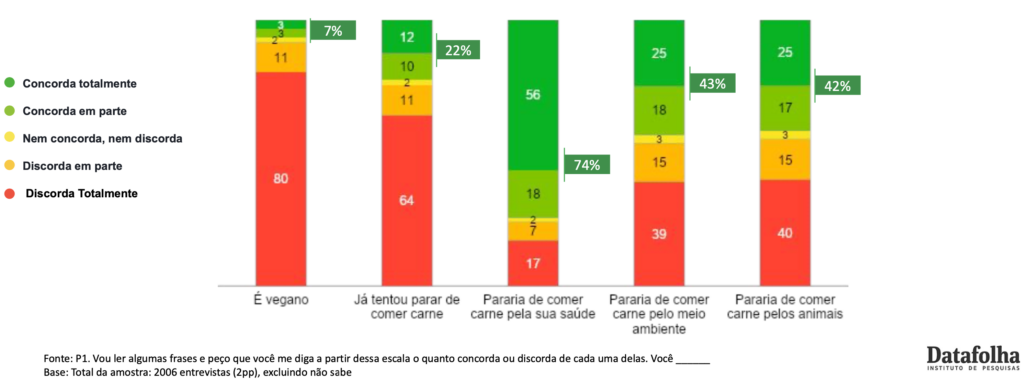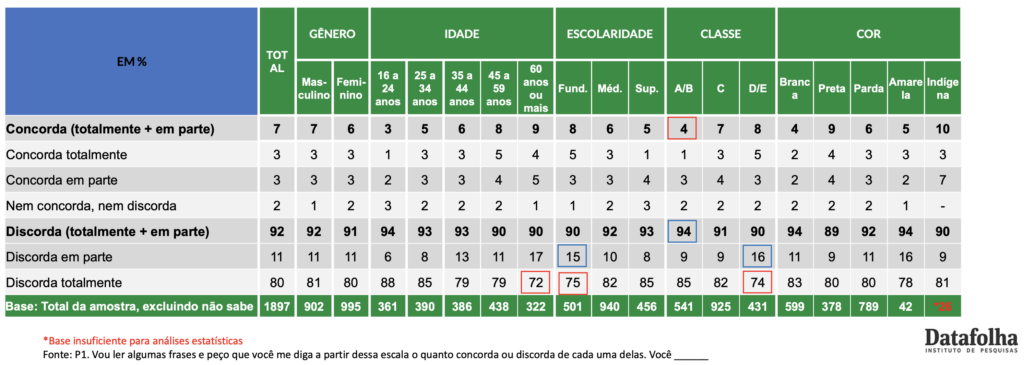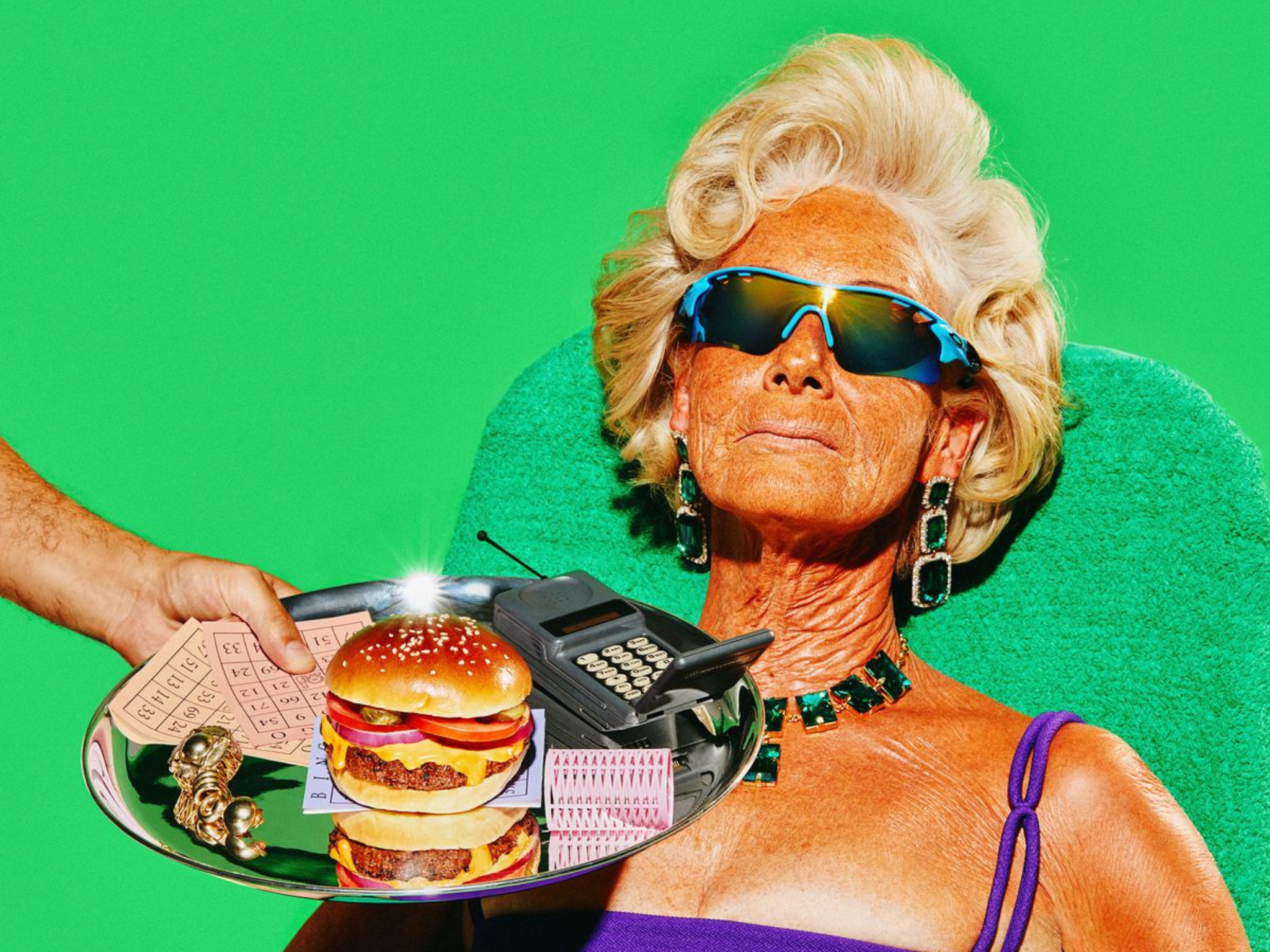4 Mins Read
Polling shows that health concerns are the biggest consumption driver in Brazil, potentially pushing 74% of its population to reduce or eliminate meat from their diets.
Brazil is home to JBS, Minerva and Marfrig, making it the world’s largest beef exporter and second-largest meat producer. 80% of all beef produced here is consumed domestically, accounting for 12% of global beef intake – per capita, only two other countries eat more beef.
Meat consumption – especially red meats like beef – is linked with a host of chronic diseases, including heart disease, obesity, cancer, and type 2 diabetes. In fact, the annual cost of treating conditions attributed to a diet heavy on processed meat in Brazil is $9.4M.
Brazilians recognise this risk, with 74% open to reducing their meat consumption out of health concerns, a new survey has found.
“It is encouraging to see that 74% of Brazilians are considering the possibility of reducing or eliminating meat consumption,” said SVB president Mônica Buava. “The survey confirms that there is a growing awareness about the impact of diet on health, the environment and respect for animals.”

Plant-based eating led by Indigenous and older populations
Conducted by the Datafolha Institute on behalf of the Brazilian Vegetarian Society (SVB), the research polled over 2,000 consumers in December, exploring dietary drivers in the country.
When asked if they’ve ever tried to stop eating meat, 22% of the respondents said yes, with women and residents in the northern part of the country more likely to do so.
Apart from health, there are other major drivers, too, with 43% saying they’re open to reducing or cutting out meat because of its impact on the environment. This is key since the food system makes up nearly three-quarters of Brazil’s overall greenhouse gas emissions. Another 42% say they’d stop eating meat to protect animal welfare.
Meanwhile, 7% of Brazilians either fully or partially agree that they’re vegan, a share that’s similar amongst both women and men. People in the south are the least likely to follow a plant-based diet, as are those in the higher income brackets and Gen Z respondents.
People aged 60 and above more commonly eat a plant-rich diet (9%) than other age groups, and the same rings true for Indigenous populations (10%).

Latin America’s growing appetite for plants
While it is home to industry pioneers like NotCo and Future Farm, Latin America has typically lagged behind regions like North America, Europe, and Asia-Pacific when it comes to building a domestic alternative protein ecosystem.
Recent data shows that this may be changing, with frequent consumption of meat-free food declining by at least five points in the latter three markets between 2023 and 2024. In fact, 15% of Latin American consumers now eat vegetarian food regularly, higher than the share in Asia-Pacific (14%) and North America (13%).
Further, Latin America is the region most open to meat analogues. It’s probably why retail sales of meat and seafood analogues in Brazil increased by 38% in 2023 (reaching $226M), with the country host to the largest Meatless Monday movement globally.
According to the Good Food Institute, 36% of Brazilians reduced their red meat intake between 2023 and 2024, mainly due to health detriments and high costs. Catering to these trends, there are around 240 meat-free restaurants in Brazil and over 3,200 establishments with at least one vegan option.
In fact, interest in plant-based eating has remained steady over the past few years here, with SVB-commissioned research from 2018 showing that 14% of Brazilians identified as vegetarian, and 60% indicated they would eat more plant-based food if it were cheaper.
That the climate argument resonates with over two in five Brazilians is a positive sign too. According to one study, a 40% cut in beef consumption between 2022 and 2050 in Brazil could prevent 65,000 sq km of deforestation and mitigate up to 2.8 gigatonnes of CO2e, representing a third of the world’s potential mitigation from dietary changes.



